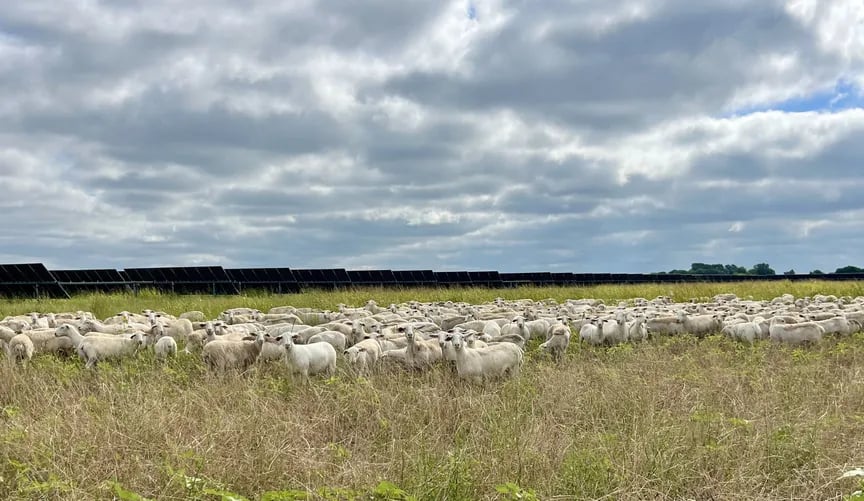Uplifting News
Welcome to /c/UpliftingNews, a dedicated space where optimism and positivity converge to bring you the most heartening and inspiring stories from around the world. We strive to curate and share content that lights up your day, invigorates your spirit, and inspires you to spread positivity in your own way. This is a sanctuary for those seeking a break from the incessant negativity often found in today's news cycle. From acts of everyday kindness to large-scale philanthropic efforts, from individual achievements to community triumphs, we bring you news that gives hope, fosters empathy, and strengthens the belief in humanity's capacity for good.
Here in /c/UpliftingNews, we uphold the values of respect, empathy, and inclusivity, fostering a supportive and vibrant community. We encourage you to share your positive news, comment, engage in uplifting conversations, and find solace in the goodness that exists around us. We are more than a news-sharing platform; we are a community built on the power of positivity and the collective desire for a more hopeful world. Remember, your small acts of kindness can be someone else's big ray of hope. Be part of the positivity revolution; share, uplift, inspire!
view the rest of the comments

The difference is that mosquitoes, ticks, and infestations are harming us. Pigs on the other hand are innocent and we simply breed them and slaughter them for greed.
I guess you could argue that, but I oppose hunting as well.
How about raising crickets or insects for food? I am guessing against because it follows the sentient plus raised to kill.
Chicken raised for laying eggs are not in bests of conditions so I would assume that is unethical to you and a no go. But what about honey? I would by no means consider honeybee conditions unethical. But interested in if you think so.
Feral hog would be the best thing I can thing of where it's something that is a pest that is not too far out of a usual diet. So is that something available to your diet?
Correct.
Even if its not unethical conditions, it is still exploitation of the honeybees. Also, honeybees take resources away from native bee populations. Therefore honeybees are harmful to the environment.
No I would not be okay with eating a feral hog. Just as I would not be okay with eating rats, mosquitoes, and ticks. It's exploitation that isn't necessary (unless you're stranded on a deserted island or something). Also feral hogs aren't really pests. They won't infest your home and would only be an issue to you if they tried to attack you.
My wife is a PhD candidate studying honeybees so I trust her when I asked the question and the effects of honeybees on the environment are a tradeoff like everything in the world is but generally positive.
To mirror the honey bee conversation, soybeans replace native prarie lands throughout the Midwest. Soybeans hurt the environment so therefor they should not be supported. But to support our population we need massive food production. So it's just not reasonable to avoid.
A massive population is really the root cause of almost all environmental issues imo. We have to blow so many things up to a high scale to support it and a self regulating population does not have the tools and responsibility for the massive reduction impact that is needed. Real change comes from an institutional level.
To the point of feral hogs at one point you mentioned the destruction of agriculture, I guess I was leaving the assumption open that feral hogs were destroying crops as the reason for the killings not them just being feral. I guess I am mainly raising the question of if your morals ever involve eating meat if it is killed under your ethical compass or if you consider the eating portion unethical in itself.
Using animals as food is exploitation of them. However, its a bit more complex then just saying its unethical as we live in a world where it is so normalized and a lot of places aren't practical to be vegan in.
One major honey bee related event every year is the mass migration of hives to pollinate almonds. Do exploitation of animals such as this affect your morals. If honey is considered a exploitation of honey bees I would also consider pollination another by-product of honey bee exploitation.
Yes. I think that it is exploitation to use honeybees to pollinate crops. However, its way less harmful to animals then the meat, dairy, and egg industries. Therefore it isn't really worth trying to fight against right now. If anything its a necessary evil now that honeybees are eating into native bee populations, reducing the amount of native bees able to pollinate.
So you won't eat honey but will eat almonds, even though both are exploiting honey bees? Is because of it being a direct product vs a indirect product of honeybees. Is an in between layer where you draw your line?
Yes.
"Veganism is a philosophy and way of living which seeks to exclude—as far as is possible and practicable—all forms of exploitation of, and cruelty to, animals for food, clothing or any other purpose"
https://www.vegansociety.com/go-vegan/definition-veganism
Avoiding almonds is much less practical then just avoiding animal products. It's not practical to avoid certain things. For example, lots of sugar is processed with bone char. However, most vegans don't worry about that. Also some fruit is coated in shellac to look shiny, but it's not worth worrying about either.
I don't think it's that impractical or impossible to avoid almonds over other nuts.
I'm sure other crops have similar issues. Thats why I mentioned sugar and fruit as well. Mostly vegans just avoid animal products.